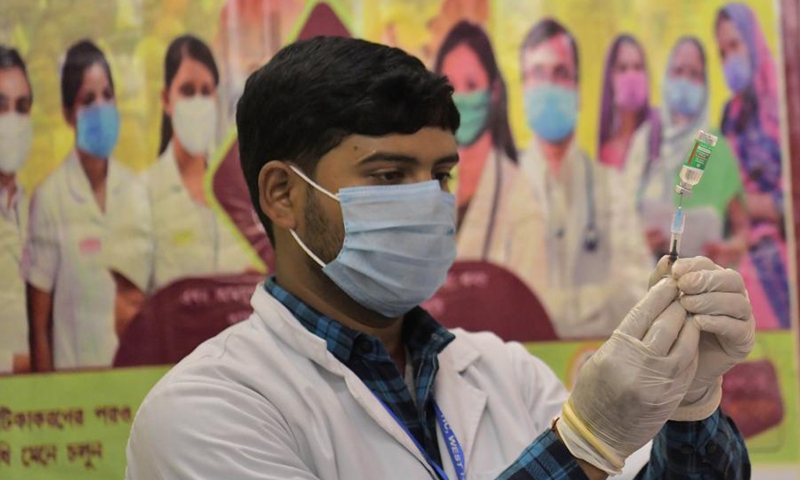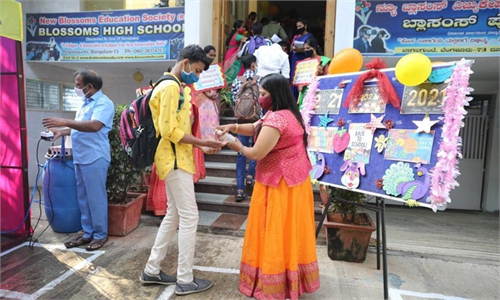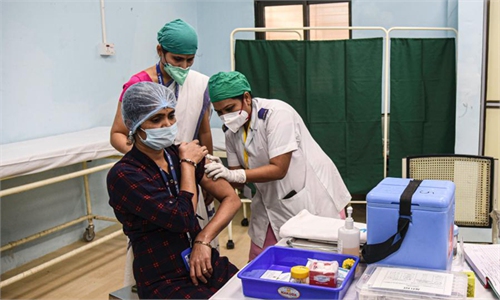
A health worker prepares a dose of the COVID-19 vaccine Covishield for health workers of the Border Security Force at Agartala, the capital city of India's northeastern state of Tripura, Jan. 21, 2021.Photo:Xinhua
While Canada's appreciation for India's vaccine cooperation could be seen by some as a sign of the latter's success in the so-called "vaccine diplomacy," it is the South Asian nation's tremendous pharmaceutical capacity that really needs to be recognized for its importance in fighting the coronavirus pandemic.
Canadian Prime Minister Justin Trudeau on Saturday thanked the support and partnership offered by India in helping secure COVID-19 vaccine doses for Canadians, according to media reports.
The expression of gratitude came right after Canada on Friday approved the Oxford University-AstraZeneca's COVID-19 vaccine, including the version called Covishield - which was developed by Astrazeneca and Oxford University and mass produced by India's Serum Institute. Meanwhile, Indian media outlets said 500,000 Covishield doses will arrive in Canada on Wednesday.
Although Canada is far ahead of most countries in the world in terms of placing vaccine orders, its dependence on foreign supplies has still caused supply pressure on the country's current inoculation drive. At this juncture, additional shipments from India could ease the anxiety of the Canadian government in the face of temporary delays in deliveries from the US and other Western manufacturers.
From India's point of view, Canada's introduction of a vaccine made in India is also a great encouragement and recognition of its pharmaceutical capacity. The move also represents an important step in India's "Vaccine Maitri" initiative, as Canada is the first Western nation and the only G7 country to accept COVID-19 doses from India.
It should be noted that since the Indian government approved the emergency-use authorization for AstraZeneca's Covishield and domestically produced Bharat Biotech's Covaxin in early January, public attention has been largely focused on its vaccines' safety and efficacy given media reports that Bharat hasn't published relevant data and completed clinical trials for Covaxin.
Yet, the Canada-India vaccine partnership may serve as a reminder that it is time to take an objective stance toward India's potential in vaccine production and development. As long as the safety and efficacy of India-produced vaccines could be guaranteed with sufficient clinical data, its production capacity should be encouraged to play a major role in fighting the pandemic.
Some observers have pointed out that India's Covishield supplies to Canada could be seen as a sign of easing diplomatic tensions between the two countries after Trudeau's comments on protest in India.
But in fact, this kind of "vaccine diplomacy" theory may be the least helpful in the global combat against the pandemic. What really matters is whether the Covishield is safe to use, rather than India's political ties with Canada.
In this sense, global vaccine cooperation should return to its original intentions, while not to be elevated to the political level. The positive role of India's contribution to the global fight against the virus should be acknowledged.


